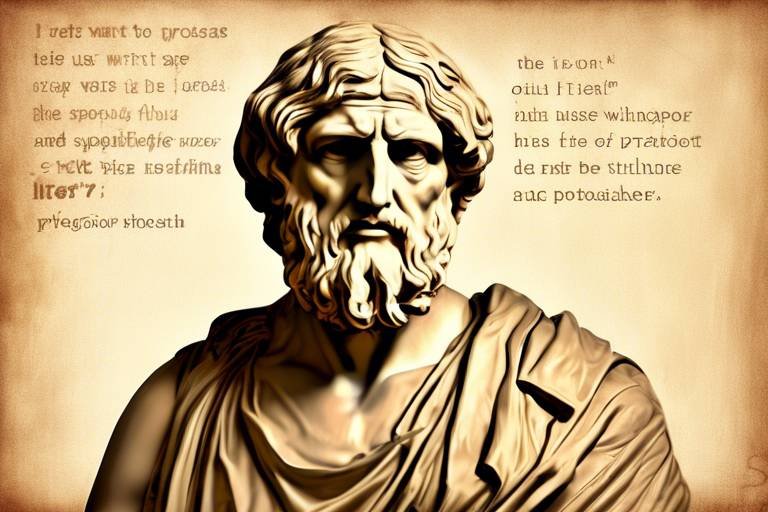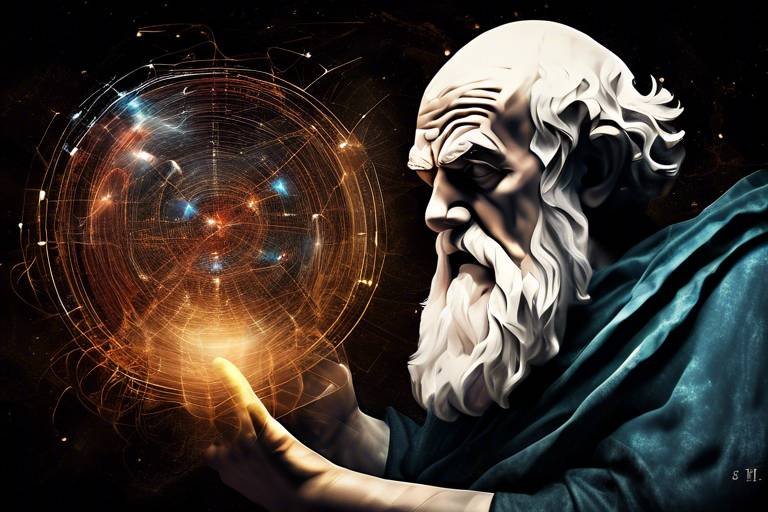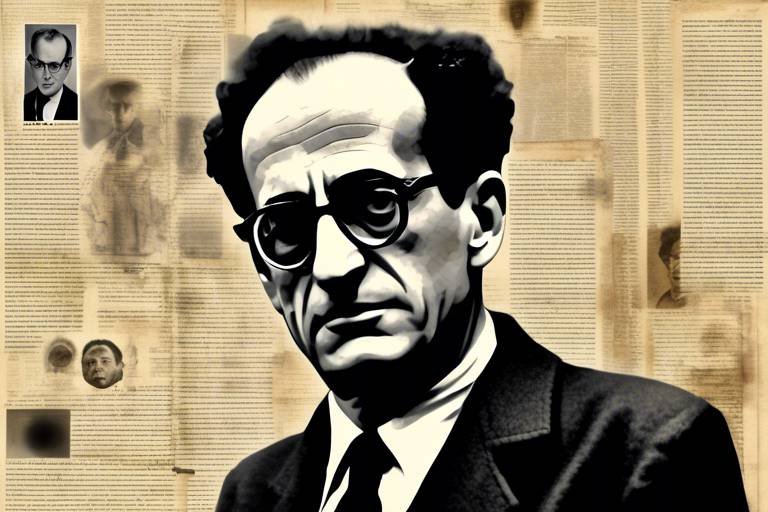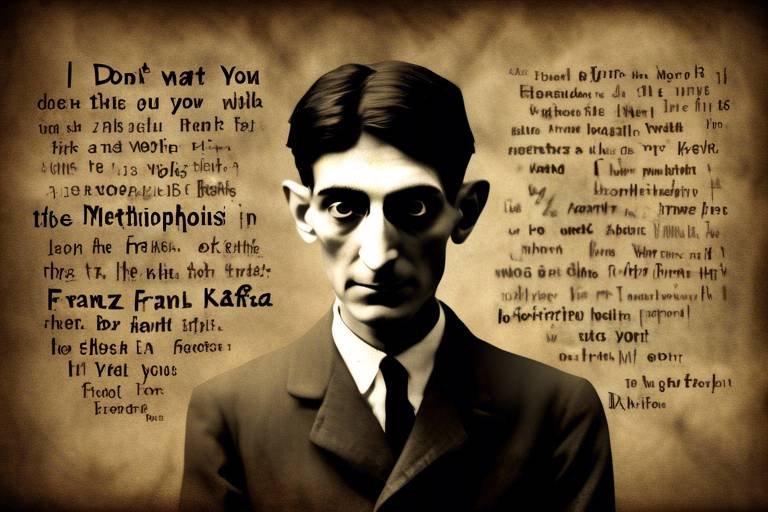A Deep Dive into the Philosophy of Karl Marx
Welcome to an enlightening journey through the mind of Karl Marx, a figure whose ideas have shaped political thought and social movements for over a century. His theories, often seen as radical in their time, continue to resonate in modern discussions about capitalism, class struggle, and the nature of society itself. But what exactly did Marx propose, and why does it matter today? This article aims to peel back the layers of his philosophy, offering insights into his foundational ideas and their lasting impact.
At the heart of Marx's philosophy lies the concept of historical materialism. This principle posits that the material conditions of a society—its economic structure, technology, and resources—play a crucial role in shaping its social relationships and historical trajectory. In simpler terms, Marx believed that what we produce and how we produce it fundamentally influences our social structures and cultural norms. For example, consider how the Industrial Revolution transformed not only economies but also family structures, working conditions, and societal roles. Marx's emphasis on material conditions invites us to examine how our current economic practices shape our lives and relationships.
As we delve deeper, we encounter the idea of class struggle, which Marx viewed as the driving force behind historical development. He argued that history is a narrative of conflicts between different social classes, primarily the bourgeoisie (the capitalist class) and the proletariat (the working class). This struggle is not merely a backdrop; it is the engine that propels societal change and the evolution of economic systems. Imagine a tug-of-war game, where each side pulls with all their might—this is how Marx envisioned the relationship between classes. The outcome of this struggle could lead to significant transformations, including revolutions that reshape the very fabric of society.
In his analysis, Marx identified the bourgeoisie and proletariat as the two primary classes in capitalist societies. The bourgeoisie owns the means of production and reaps the profits, while the proletariat sells their labor for wages, often struggling to make ends meet. This dynamic creates a cycle of exploitation, where the capitalist class benefits at the expense of the working class. But it doesn't stop there—Marx also discussed how this exploitation leads to alienation, a sense of disconnect workers feel from the products of their labor, their fellow workers, and their own human potential. Imagine a factory worker who assembles parts for a car but never sees the final product or feels a sense of pride in their work; this is the alienation Marx warned against.
Marx believed that the proletariat held the potential for revolutionary change. He argued that as workers become more aware of their exploitation and unite against their oppressors, they could overthrow the capitalist system. This idea of revolutionary potential is crucial, as it suggests that change is not only possible but inevitable under the right conditions. The question remains: what are those conditions? Marx posited that a growing awareness of class consciousness—an understanding of one's social class and its interests—is essential for mobilizing the proletariat to challenge existing power structures.
As we explore Marx's critique of capitalism, we find that he focused on its inherent contradictions and unsustainable nature. He pointed out that capitalism is prone to economic crises, which arise from overproduction, underconsumption, and the concentration of wealth. These crises not only threaten the stability of the economy but also exacerbate inequality, creating a society where the rich get richer while the poor struggle to survive. Marx's vision of capitalism's eventual collapse invites us to reflect on our current economic systems and question their sustainability.
Finally, it’s essential to consider the role of ideology in Marx's philosophy. He argued that dominant ideologies serve to maintain class structures, often obscuring the realities of exploitation. This leads to the concept of false consciousness, where individuals may not recognize their own exploitation due to misleading ideologies that promote the interests of the ruling class. For instance, consider how advertisements and media can shape our desires and beliefs, often diverting attention from systemic injustices. By understanding ideology's role, we can raise class consciousness and empower the proletariat to challenge and transform existing power structures.
In conclusion, Marx's philosophy offers a profound lens through which to view our world. His ideas on historical materialism, class struggle, and ideology remain relevant as we navigate the complexities of modern society. As we continue to grapple with issues of inequality and exploitation, Marx's insights remind us that understanding our social structures is the first step toward meaningful change.
- What is historical materialism? Historical materialism is the idea that material conditions, such as economic structures and resources, shape society and history.
- What are the key classes in Marx's theory? The key classes are the bourgeoisie (capitalist class) and the proletariat (working class).
- What does Marx mean by class struggle? Class struggle refers to the conflicts between different social classes that drive societal change and historical development.
- How does ideology play a role in capitalism? Ideology helps maintain class structures by obscuring the realities of exploitation and creating false consciousness among individuals.
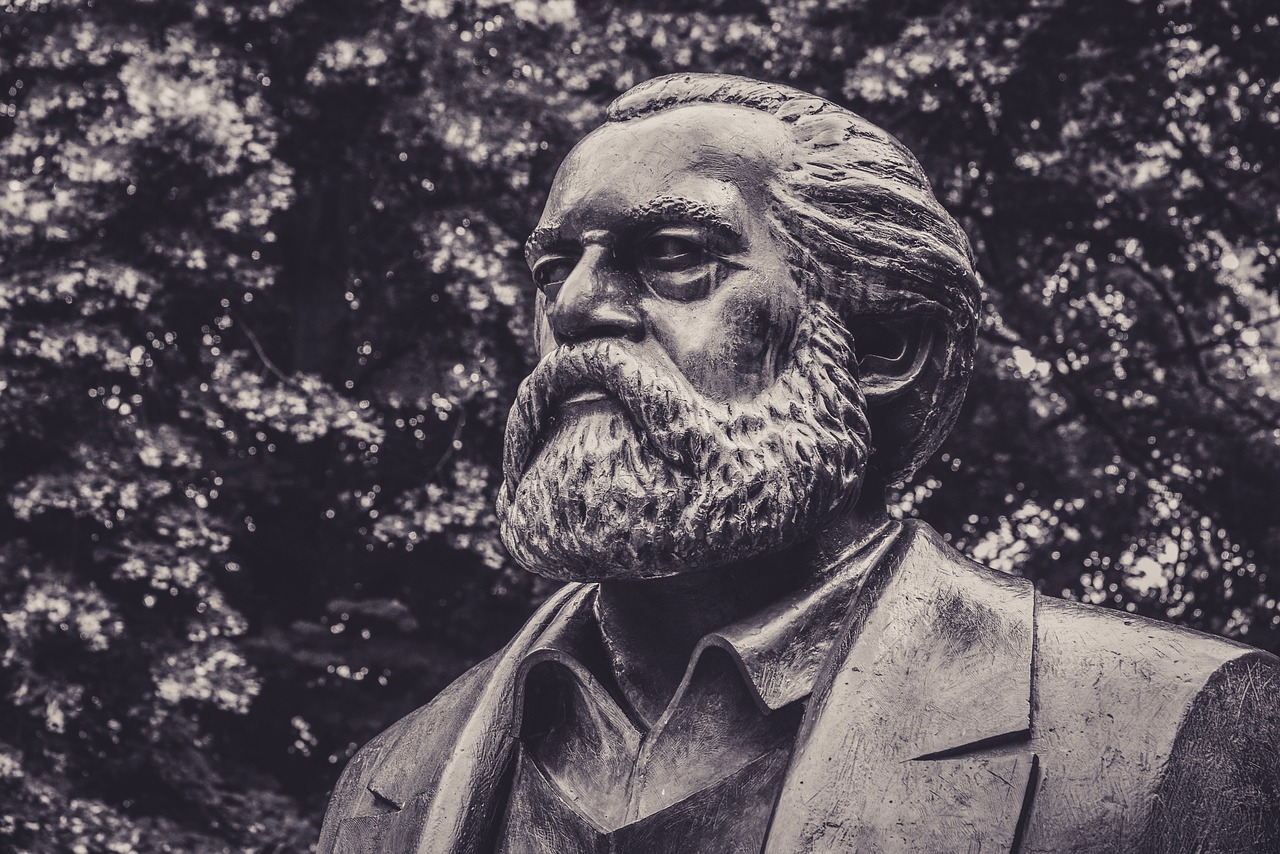
Understanding Historical Materialism
Historical materialism is a cornerstone of Karl Marx's philosophy, serving as a lens through which we can view the evolution of societies and their structures. At its core, this theory posits that the material conditions of a society—such as its economic systems, technological advancements, and available resources—are the primary drivers of historical development. Unlike idealist perspectives that prioritize ideas and consciousness as the main forces shaping history, historical materialism emphasizes the tangible realities of life. It suggests that the way humans produce and reproduce their means of existence fundamentally shapes their social relations and institutions.
To put it simply, think of historical materialism as the foundation of a house. Just as a house cannot stand without a solid base, societies cannot thrive without a robust material foundation. This perspective allows us to analyze how different modes of production, such as feudalism, capitalism, and socialism, influence the social fabric and the relationships between individuals. For instance, under capitalism, the relationships between workers and owners are defined by the production of goods and the profit motive, which creates a unique set of social dynamics.
One of the key implications of historical materialism is its focus on social change. Marx argued that societal shifts occur not through the whims of great leaders or revolutionary ideas alone but through the struggles and conflicts arising from material conditions. For example, the transition from feudalism to capitalism was not just a philosophical shift; it was driven by changes in agricultural practices, the rise of trade, and the emergence of a new class of merchants and industrialists. This change was not smooth or linear; rather, it was marked by conflicts, such as revolutions and class struggles, which highlighted the tensions between different social classes.
Moreover, historical materialism also invites us to consider the role of technology in shaping human societies. Technological advancements can revolutionize production methods, alter labor dynamics, and even shift power balances. Take, for example, the Industrial Revolution, which not only transformed economies but also drastically changed social relations. As factories emerged, the working class began to organize and assert its rights, leading to significant social upheaval and ultimately paving the way for labor rights movements.
In summary, historical materialism provides a comprehensive framework for understanding the interplay between material conditions and social structures. It challenges us to look beyond surface-level events and consider the underlying economic forces that shape human experiences. By doing so, we gain a deeper appreciation for the complexities of social change and the importance of recognizing the material realities that influence our lives.
- What is historical materialism? Historical materialism is a theory developed by Karl Marx that emphasizes the role of material conditions in shaping society and history.
- How does historical materialism differ from idealism? While idealism focuses on ideas and consciousness as primary forces of change, historical materialism asserts that material conditions are the primary drivers of historical development.
- Why is technology important in historical materialism? Technology plays a crucial role in shaping production methods and social relations, influencing the dynamics of class struggle and societal evolution.

Class Struggle as a Driving Force
The concept of class struggle is central to Karl Marx's philosophy, serving as the **engine** that drives historical development and societal change. Imagine a vast machine, where each gear represents different social classes, constantly grinding against one another, shaping the world as we know it. Marx believed that the conflicts between these classes are not just mere disagreements; they are fundamental to the evolution of economic systems and social structures. To grasp the essence of this struggle, we must first understand the two primary classes that Marx focused on: the bourgeoisie and the proletariat.
At its core, the bourgeoisie, or the capitalist class, owns the means of production—factories, land, and resources—while the proletariat, the working class, sells their labor to survive. This relationship is inherently **exploitative**, as the bourgeoisie profits from the labor of the proletariat without adequately compensating them for their contributions. This dynamic creates a palpable tension, leading to conflicts that can manifest in various forms, from **strikes** and protests to revolutions and social upheaval.
Marx argued that these struggles are not isolated incidents but rather part of a larger historical pattern. Each class struggle reflects the contradictions and inequalities inherent in the capitalist system. For instance, when workers unite to demand better wages or working conditions, they are not merely seeking individual gains; they are challenging the very foundations of the capitalist structure that seeks to keep them oppressed. This collective action can lead to significant social change, as it raises awareness and fosters a sense of **solidarity** among the working class.
Furthermore, the class struggle is not a static phenomenon; it evolves as society changes. As new technologies emerge and economic conditions shift, the relationships between classes adapt accordingly. For example, the rise of the gig economy has transformed traditional labor dynamics, creating new forms of exploitation and alienation. In this context, the proletariat must continuously reassess their position and strategies to effectively challenge the bourgeoisie.
In summary, class struggle is more than just a theoretical concept; it is a **dynamic force** that shapes our history and influences our future. Understanding this struggle allows us to see the world through a different lens, recognizing the power of collective action and the potential for revolutionary change. The question remains: how can the proletariat harness this struggle to create a more equitable society?
- What is class struggle? Class struggle refers to the conflict between different classes in society, primarily between the bourgeoisie (capitalist class) and the proletariat (working class).
- Why is class struggle important? It is essential because it drives historical change and highlights the inequalities within capitalist systems.
- How does class struggle manifest in modern society? It manifests through strikes, protests, and movements advocating for workers' rights and social justice.
- Can class struggle lead to revolutionary change? Yes, Marx believed that the collective action of the proletariat could potentially overthrow the capitalist system and create a more equitable society.
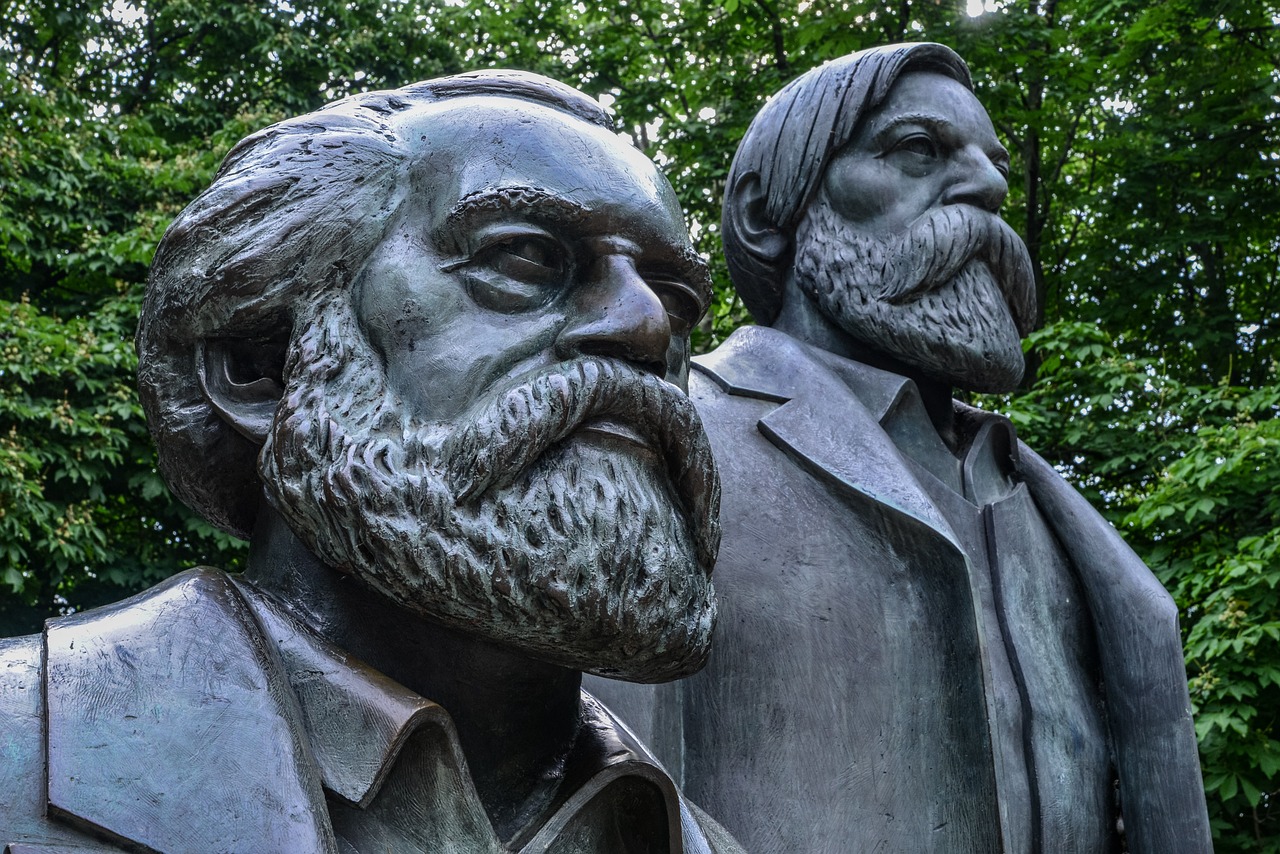
The Bourgeoisie and Proletariat
The relationship between the bourgeoisie and the proletariat is central to Marx's critique of capitalism. These two classes represent opposing forces in the social and economic structure of society, each with its own interests and roles. The bourgeoisie, or the capitalist class, owns the means of production—factories, land, and resources—while the proletariat, or the working class, sells their labor to survive. This dynamic creates a fundamental conflict, as the bourgeoisie seeks to maximize profit, often at the expense of the proletariat's well-being.
Marx argued that this relationship is inherently exploitative. The bourgeoisie profits from the labor of the proletariat, paying them less than the value they produce. This leads to a situation where the rich get richer while the working class struggles to make ends meet. To illustrate this, consider the following table that summarizes the key differences between these two classes:
| Class | Definition | Role in Society | Economic Power |
|---|---|---|---|
| Bourgeoisie | Capitalist class that owns the means of production | Controls resources and production | High |
| Proletariat | Working class that sells labor | Provides labor for production | Low |
This exploitation leads to feelings of alienation among the proletariat, as they become disconnected from the fruits of their labor. They do not own what they produce and often have little control over their working conditions. This alienation is not just economic; it permeates all aspects of life, affecting personal relationships and social interactions. Workers may feel like mere cogs in a machine, valued only for their ability to generate profit rather than as individuals with unique needs and aspirations.
Moreover, the struggle between these two classes is not just a theoretical concept; it plays out in real-world scenarios. For instance, labor strikes and protests often arise from the proletariat's desire for better wages and working conditions. These movements highlight the tensions between the two classes and demonstrate the potential for social change. Marx believed that as the proletariat becomes more aware of their exploitation, they would develop a sense of class consciousness, recognizing their shared struggles and interests.
In essence, the dynamic between the bourgeoisie and the proletariat is a critical lens through which to view societal change. The ongoing conflict between these classes drives historical development and shapes the evolution of economic systems. As the proletariat becomes increasingly aware of their power and potential for collective action, they may challenge the existing order, leading to revolutionary change. This is where the true potential of the proletariat lies—not just as workers, but as agents of social transformation.
- What is the main difference between the bourgeoisie and the proletariat?
The bourgeoisie owns the means of production, while the proletariat sells their labor to survive. - How does class struggle impact society?
Class struggle drives historical change, influencing economic systems and social relations. - What did Marx mean by alienation?
Alienation refers to the disconnection workers feel from their labor and the products they create, resulting from capitalist exploitation. - Can the proletariat bring about social change?
Yes, Marx believed that through class consciousness and collective action, the proletariat has the potential to challenge and change the existing power structures.

Exploitation and Alienation
At the heart of Marx's critique of capitalism lies the concepts of exploitation and alienation, two intertwined ideas that reveal the harsh realities faced by the working class. Exploitation refers to the way in which the capitalist system extracts value from workers, paying them less than the worth of what they produce. Imagine a factory where workers toil for hours, creating products that are sold for a significant profit. Yet, these workers receive only a fraction of that profit in the form of wages. This disparity highlights the essence of exploitation: the capitalist class, or bourgeoisie, enriches itself at the expense of the proletariat, or working class.
Now, let’s dive deeper into the idea of alienation. In a capitalist society, workers often find themselves disconnected from the very products of their labor. When a worker assembles a car, for instance, they may not see it as a culmination of their skill and effort but rather as just another task to complete for a paycheck. This disconnect can lead to feelings of alienation, where individuals feel estranged not only from their work but also from their own identity and potential. They become mere cogs in a vast machine, performing repetitive tasks that offer little fulfillment. This alienation is not just a personal experience; it’s a systemic issue that affects the entire workforce.
To illustrate this, consider the following table that summarizes the key differences between exploitation and alienation:
| Concept | Description |
|---|---|
| Exploitation | The process by which capitalists profit from the labor of workers, paying them less than the value of their output. |
| Alienation | The feeling of disconnection from the products of one's labor, leading to a loss of personal identity and fulfillment. |
Marx argued that this exploitation and alienation are not mere byproducts of capitalism but are rather its fundamental characteristics. Workers are compelled to sell their labor to survive, and in doing so, they often surrender their autonomy and creativity. This situation raises an important question: what happens when workers become aware of their exploitation and alienation? This awareness can foster a sense of solidarity among the proletariat, igniting a desire for change. It’s like a light bulb turning on in a dark room; once the workers realize the extent of their exploitation, they may begin to seek ways to reclaim their rights and dignity.
In contemporary discussions about work, these concepts remain incredibly relevant. Many people today experience job dissatisfaction, feeling trapped in roles that do not reflect their passions or skills. The rise of the gig economy has further complicated this issue, as workers often find themselves in precarious positions, lacking benefits and job security. This modern landscape echoes Marx's warnings about the alienating effects of labor under capitalism.
In conclusion, understanding exploitation and alienation is crucial for grasping Marx's critique of capitalism. These concepts not only highlight the struggles of the working class but also serve as a call to action for those who seek to challenge and change the existing power structures. By recognizing their own exploitation and alienation, workers can begin to envision a society where their labor is valued and their identities are restored.
- What is exploitation in capitalism? Exploitation refers to the process by which capitalists profit from the labor of workers, paying them less than the value of what they produce.
- How does alienation affect workers? Alienation leads to workers feeling disconnected from the products of their labor, resulting in a loss of personal identity and fulfillment.
- Can awareness of exploitation lead to social change? Yes, when workers become aware of their exploitation and alienation, it can foster solidarity and a desire for change.

Revolutionary Potential of the Proletariat
The revolutionary potential of the **proletariat** is one of Karl Marx's most compelling ideas, highlighting the working class's ability to initiate profound societal transformations. Marx believed that the proletariat, as the class of wage laborers, was uniquely positioned to challenge the existing capitalist structures due to their collective experiences of exploitation and oppression. But what exactly does this potential entail? To understand this, we must first consider the conditions that Marx identified as necessary for a successful revolution.
Marx argued that the proletariat must reach a certain level of **class consciousness**—an awareness of their shared interests and the injustices they face within the capitalist system. This consciousness is crucial because it enables workers to recognize their collective power. Imagine a group of workers, each feeling isolated in their struggles, suddenly realizing that they are part of a larger movement. This awakening can be likened to a light bulb turning on in a dark room; once illuminated, the potential for change becomes clear.
Moreover, the proletariat's revolutionary potential is amplified when certain conditions align. These include:
- Economic Crises: Periods of economic downturn can exacerbate inequalities and discontent among workers, making them more receptive to revolutionary ideas.
- Political Repression: When the ruling class resorts to oppressive measures to maintain control, it can provoke backlash and mobilize the proletariat.
- Solidarity Among Workers: The formation of unions and collective movements can strengthen the resolve of the working class, fostering a sense of unity and purpose.
Marx posited that when these conditions converge, the proletariat could rise against the bourgeoisie, leading to a **revolutionary upheaval**. This isn't just about overthrowing one group of people; it's about dismantling an entire system that perpetuates inequality and exploitation. The ultimate goal is the establishment of a **classless society**, where the means of production are collectively owned, and resources are distributed based on need rather than profit.
However, it's important to note that Marx was not naively optimistic about this process. He recognized that revolutions often come with chaos and uncertainty. The path to a new society is fraught with challenges, including potential backlash from the bourgeoisie and the complexities of building a new economic system. Yet, Marx's belief in the proletariat's potential remains a powerful idea that continues to resonate in today's discussions about social justice and economic inequality. As we reflect on these concepts, one must ask: Are we witnessing the awakening of the proletariat in our own time? Could the conditions Marx described be emerging once again?
- What is the revolutionary potential of the proletariat?
The revolutionary potential of the proletariat refers to the working class's capacity to unite and challenge the capitalist system, ultimately leading to societal transformation. - What conditions are necessary for a proletarian revolution?
Key conditions include economic crises, political repression, and solidarity among workers, which can catalyze collective action against the ruling class. - How does class consciousness play a role in revolution?
Class consciousness is essential for the proletariat to recognize their shared interests and collective power, enabling them to mobilize effectively for change. - What are the outcomes of a successful proletarian revolution?
A successful revolution aims to dismantle capitalist structures, leading to a classless society where resources are distributed based on need rather than profit.
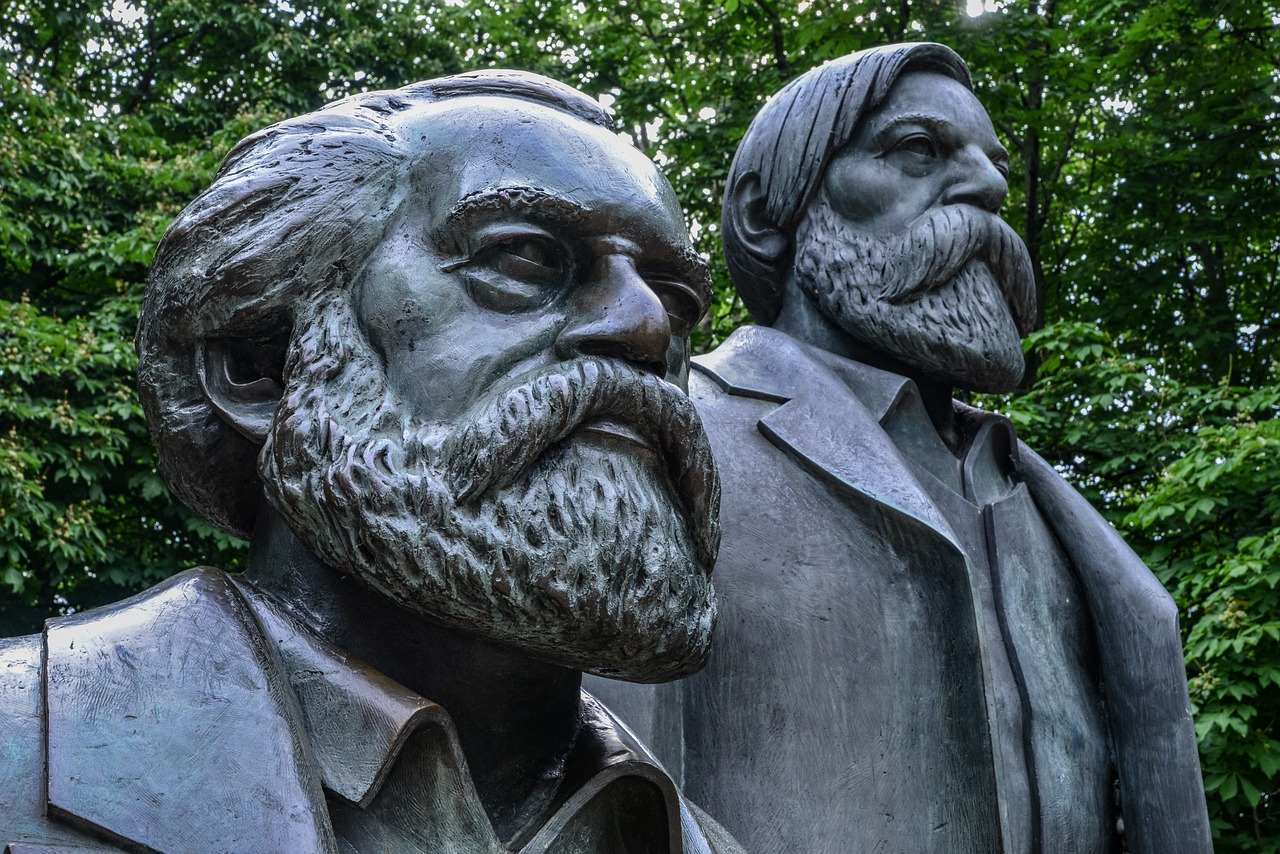
Critique of Capitalism
When we dive into Karl Marx's critique of capitalism, we uncover a treasure trove of insights that challenge the very foundation of capitalist societies. Marx argued that capitalism is not just an economic system; it's a complex web of social relations that leads to inherent contradictions and inequalities. At its core, capitalism thrives on the exploitation of the working class, the proletariat, by the ruling class, the bourgeoisie. This relationship is not merely transactional; it’s a fundamental aspect of how wealth and power are distributed and maintained in society.
One of the most striking aspects of Marx's critique is his focus on economic crises. He posited that capitalism is prone to cycles of boom and bust, where periods of economic growth are inevitably followed by downturns. These crises emerge from the contradictions inherent in capitalism itself, such as the overproduction of goods and the underconsumption by workers who are not paid enough to afford the products they create. This cycle can lead to significant social unrest and a questioning of the legitimacy of the capitalist system.
Marx also highlighted the issue of inequality, arguing that capitalism inherently produces disparities in wealth and power. The rich get richer while the poor remain trapped in a cycle of poverty. This inequality is not just a byproduct of capitalism; it is a feature of the system. The concentration of wealth in the hands of a few leads to a distortion of democracy, where the interests of the majority are often sidelined in favor of the elite. This raises critical questions: How can a society claim to be democratic when a small fraction of the population holds the majority of power and resources?
Moreover, Marx believed that capitalism ultimately leads to its own demise. He argued that as the proletariat becomes increasingly aware of their exploitation, they will rise against the bourgeoisie. This revolutionary potential is a key aspect of Marx's thought, suggesting that the contradictions of capitalism will create the conditions necessary for its overthrow. In this light, capitalism is seen not as a permanent fixture of society but as a transitional phase that will give way to a more equitable system, often referred to as socialism.
To summarize, Marx's critique of capitalism can be encapsulated in several key points:
- Inherent Contradictions: Capitalism is marked by cycles of economic crises and instability.
- Exploitation: The working class is systematically exploited for the benefit of the bourgeoisie.
- Inequality: Wealth and power are concentrated in the hands of a few, undermining democracy.
- Revolutionary Potential: The contradictions of capitalism will eventually lead to its downfall and the rise of socialism.
Marx's critique remains relevant today, as we witness growing economic disparities and social movements advocating for change. Understanding his perspective allows us to critically evaluate our current economic systems and consider alternatives that prioritize equity and justice. In a world where the consequences of capitalism are increasingly visible, revisiting Marx's ideas offers a lens through which we can analyze and challenge the status quo.
- What is the main argument of Marx's critique of capitalism?
Marx's main argument is that capitalism is inherently exploitative and leads to economic crises and social inequality, ultimately making it unsustainable.
- How does Marx view the relationship between the bourgeoisie and the proletariat?
Marx views this relationship as one of exploitation, where the bourgeoisie profits from the labor of the proletariat, leading to class struggles.
- What role do economic crises play in Marx's critique?
Economic crises are seen as inevitable outcomes of capitalism due to its inherent contradictions, which can lead to social unrest and revolutionary potential among the working class.
- Can capitalism lead to its own downfall?
Yes, Marx believed that the contradictions and inequalities produced by capitalism would eventually lead to its collapse and the emergence of a more equitable system.
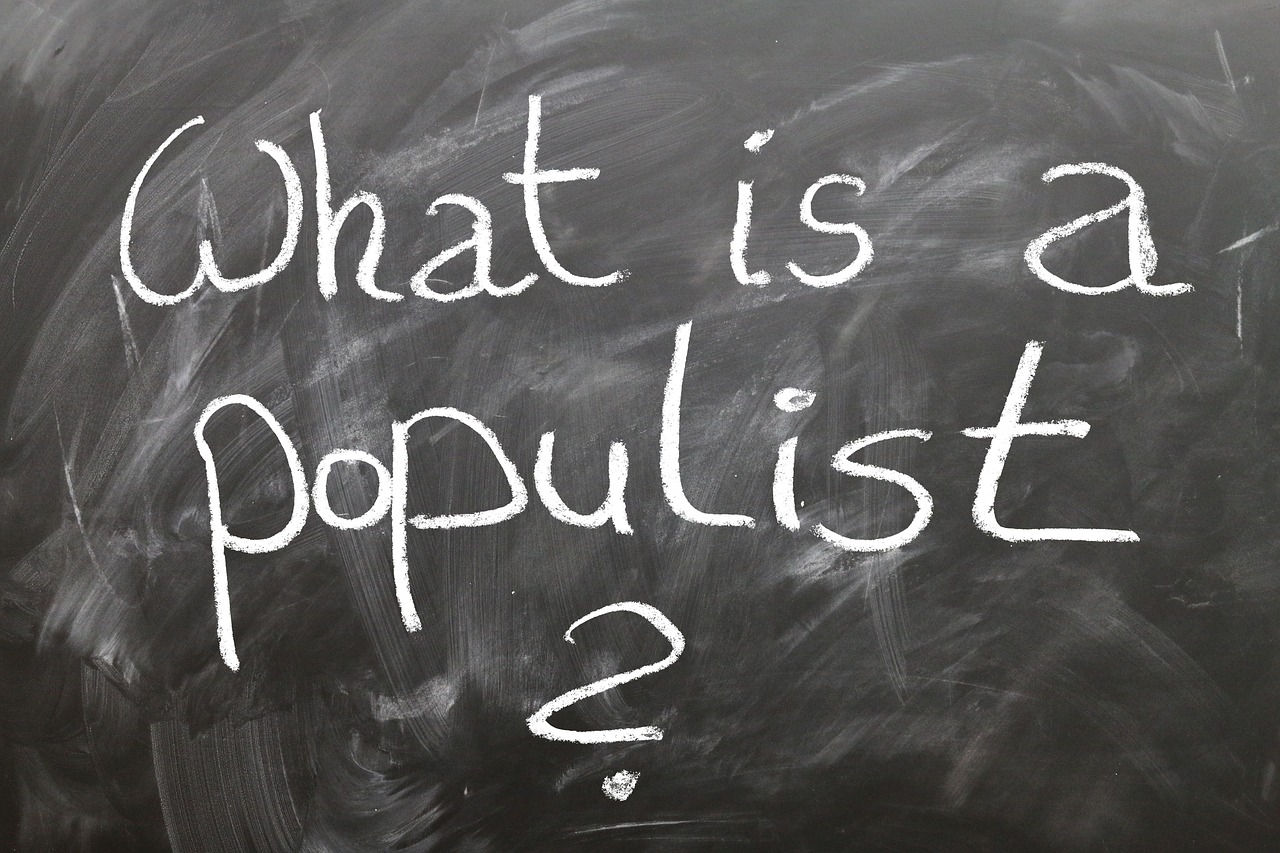
The Role of Ideology
When we talk about ideology in the context of Karl Marx's philosophy, we're diving into a complex yet fascinating realm that shapes how societies function. Marx believed that ideology is not just a collection of ideas, but a powerful tool that serves the interests of the ruling class. It acts like a lens through which individuals view the world, often obscuring the harsh realities of their existence. Imagine wearing sunglasses that filter out the sun's glare but also distort the colors of the world around you. This is how ideology can cloud our understanding of social dynamics.
At its core, ideology helps maintain the status quo, allowing those in power to perpetuate their dominance. Marx argued that the dominant ideology of any society reflects the interests of its ruling class, creating a scenario where the working class may be misled about their true conditions. This phenomenon is often referred to as false consciousness. Just like a magician distracts the audience with one hand while performing tricks with the other, dominant ideologies distract the working class from recognizing their exploitation. In this way, ideology acts as a shield, protecting the ruling class from scrutiny and rebellion.
Marx's analysis of ideology leads us to consider its implications for social change. If we can understand the mechanisms through which ideology operates, we can begin to dismantle the barriers it erects. For instance, raising class consciousness among the proletariat is crucial. This involves educating individuals about the realities of their exploitation and the structural inequalities that exist within capitalist societies. When workers become aware of their collective power, they can challenge the dominant narratives that have kept them subdued.
To illustrate this point, let's consider a few key aspects of ideology and its role in society:
- Justification of Inequality: Ideologies often present social hierarchies as natural or inevitable, making it easier for the ruling class to justify their privileges.
- Normalization of Exploitation: By framing exploitation as a normal part of life, ideologies can make workers accept their conditions without question.
- Obscuring Class Conflict: Ideologies can divert attention from class struggle, promoting ideas of individualism that distract from collective action.
Understanding ideology is not just an academic exercise; it's a vital step toward social transformation. By challenging the dominant narratives and fostering a critical awareness among the working class, we can create conditions ripe for revolutionary change. Just as a seed needs the right environment to grow, the proletariat requires a fertile ground of awareness and solidarity to rise up against oppression.
In conclusion, the role of ideology in Marx's philosophy is multifaceted and deeply intertwined with the fabric of society. It serves as both a tool of oppression and a potential catalyst for liberation. By dissecting the ideologies that govern our lives, we can begin to peel back the layers of false consciousness and ignite a movement toward a more equitable world.
Q: What is the main function of ideology according to Marx?
A: Ideology serves to maintain the interests of the ruling class by obscuring the realities of exploitation and inequality in society.
Q: What is false consciousness?
A: False consciousness is a term used to describe a situation where individuals are unaware of their exploitation and the true nature of their social conditions due to dominant ideologies.
Q: How can ideology be challenged?
A: Ideology can be challenged by raising class consciousness, educating individuals about their exploitation, and fostering solidarity among the working class to promote collective action.
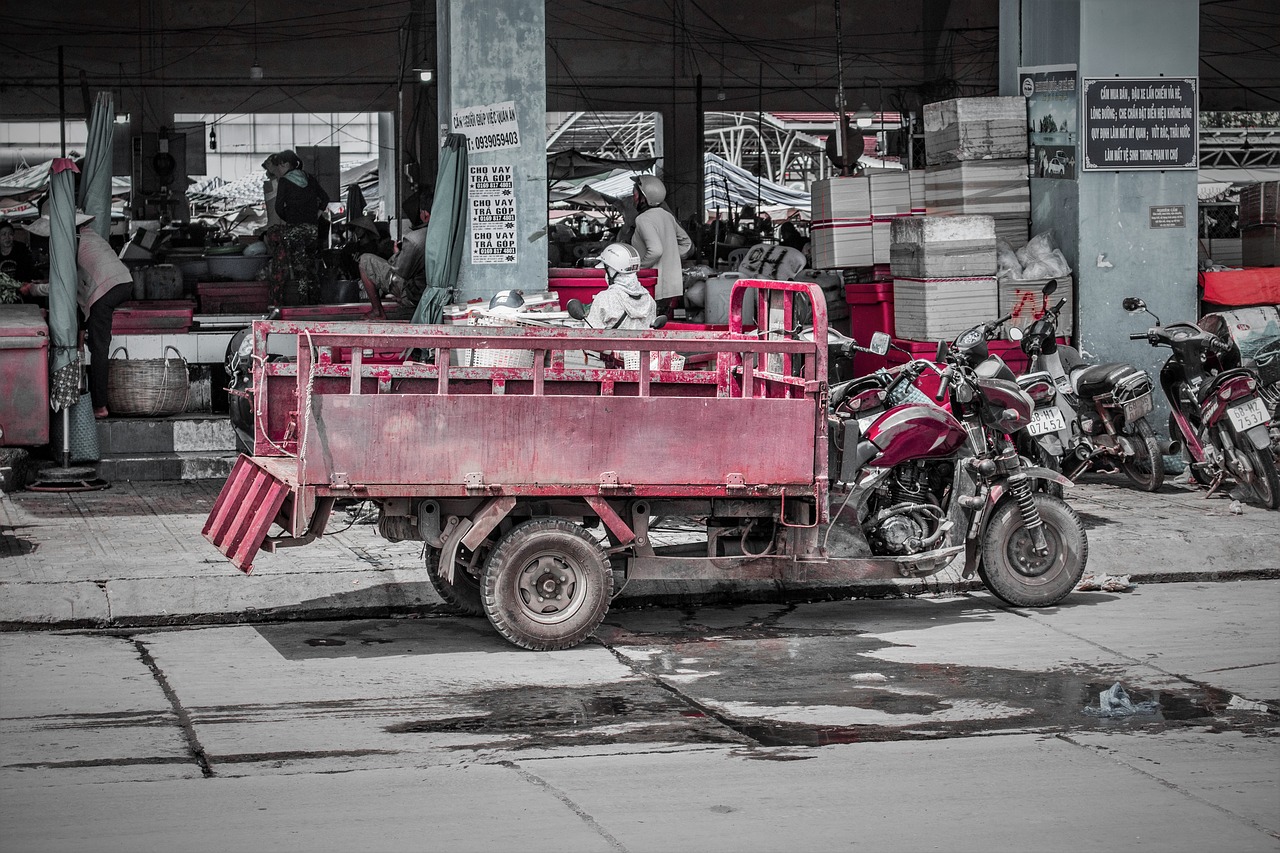
False Consciousness
The concept of is a fascinating yet troubling aspect of Marx's critique of capitalism. It refers to the way in which individuals, particularly those in the working class, can be misled about their true social and economic positions. Imagine a fish swimming in a tank, blissfully unaware of the world outside. This metaphor captures how people can be enveloped in ideologies that obscure the harsh realities of their exploitation. In essence, false consciousness serves to maintain the status quo by preventing the working class from recognizing their own oppression.
Marx argued that the ruling class propagates ideologies that promote a distorted view of reality. These ideologies can manifest in various forms, including cultural narratives, media representations, and educational systems. They create an illusion of equality and opportunity, making individuals believe that they can succeed through hard work alone, regardless of the structural barriers in place. This is akin to a mirage in the desert; it looks enticing and achievable, but once you reach out, it dissipates, leaving you with nothing but sand.
To illustrate this further, consider the following examples of how false consciousness can manifest:
- Consumerism: The belief that happiness can be purchased through material goods distracts individuals from the systemic issues that perpetuate inequality.
- Individualism: The idea that success is solely a result of personal effort ignores the advantages that come from one's social class or background.
- Political Apathy: A sense of disillusionment with political processes can lead to disengagement, allowing the ruling class to maintain control without challenge.
These examples highlight how false consciousness can hinder the working class's ability to unite and recognize their shared struggles. When people are trapped in this mindset, they are less likely to engage in collective action or challenge the existing power structures. In this way, false consciousness not only perpetuates individual suffering but also stymies broader social change.
However, Marx believed that awareness of false consciousness could lead to a revolutionary awakening. By fostering a sense of class consciousness, individuals could begin to see beyond the illusions created by dominant ideologies. This awakening is crucial for empowering the proletariat to challenge their conditions and strive for a more equitable society. As individuals start to question the narratives they've been fed, they can collectively work towards dismantling the systems that have kept them in the dark.
In conclusion, false consciousness is not just an academic concept; it has real-world implications that affect the lives of millions. By understanding how ideologies shape our perceptions and beliefs, we can begin to peel back the layers of deception and work towards a society where individuals are fully aware of their exploitation and can act upon it. The journey from ignorance to awareness is vital for any meaningful social change, and recognizing false consciousness is the first step in that transformative process.
- What is false consciousness?
False consciousness is a term used to describe a state where individuals are unaware of their exploitation and the true nature of their social conditions due to misleading ideologies. - How does false consciousness affect social change?
It hinders social change by preventing the working class from recognizing their shared struggles and uniting against oppressive systems. - Can false consciousness be overcome?
Yes, by raising class consciousness and fostering awareness of exploitation, individuals can challenge existing power structures and work towards social change.

Ideology and Social Change
When we talk about ideology, it's like peering through a lens that shapes how we view the world. For Karl Marx, ideology isn't just a collection of beliefs; it's a powerful tool that can either maintain or transform social structures. Think of it as the air we breathe—often invisible, yet profoundly influential. Marx argued that the dominant ideology of any society reflects the interests of the ruling class, effectively obscuring the realities of exploitation faced by the working class. This means that the very ideas we take for granted can serve to perpetuate inequality and oppression.
In Marx's view, the ruling class controls not only the means of production but also the means of ideological production. This means they have the power to shape narratives, values, and beliefs that justify their position at the top of the social hierarchy. For example, consider how the idea of the "American Dream" suggests that anyone can achieve success through hard work. While this notion can be inspiring, it also conveniently overlooks the systemic barriers that many face—thus, it serves the interests of those already in power.
However, understanding the role of ideology is crucial for fostering social change. When individuals become aware of how their beliefs may be shaped by the ruling class, they can begin to challenge these narratives. This process of awakening, often referred to as raising class consciousness, empowers the proletariat to recognize their shared interests and unite against the forces of oppression. It's akin to a light bulb turning on in a dark room—suddenly, the shadows of exploitation and inequality become visible, and the path to change becomes clearer.
To illustrate this idea further, let's consider a table that summarizes the relationship between ideology and social change:
| Aspect | Impact of Ideology | Path to Change |
|---|---|---|
| Dominant Ideology | Justifies the status quo | Awareness and critique |
| False Consciousness | Hinders social awareness | Education and solidarity |
| Class Consciousness | Empowers collective action | Revolutionary movements |
In conclusion, the interplay between ideology and social change is a dynamic and ongoing process. As individuals begin to question the narratives that have been handed to them, they can challenge the existing power structures and work towards a more equitable society. The journey from ideology to action requires not just awareness but also the courage to stand up against the forces that seek to maintain the status quo. After all, as Marx suggested, the proletariat holds the revolutionary potential to reshape the world, but only if they can see beyond the veil of ideology that has long obscured their vision.
- What is ideology in Marxist theory? Ideology refers to the set of beliefs and values that justify the interests of the ruling class and shape societal norms.
- How does ideology affect social change? Understanding and critiquing dominant ideologies can empower individuals to challenge existing power structures and foster social transformation.
- What is class consciousness? Class consciousness is the awareness of one's social class and its shared interests, which can lead to collective action against oppression.
- Why is false consciousness significant? False consciousness describes a state where individuals are unaware of their exploitation, hindering their ability to recognize and challenge systemic inequalities.
Frequently Asked Questions
- What is historical materialism?
Historical materialism is a foundational concept in Marx's philosophy that emphasizes how material conditions, such as economic factors and class relations, shape society and its history. It suggests that the way societies produce and distribute goods influences their social structures and cultural norms.
- How does class struggle drive societal change?
Marx believed that class struggle, the conflict between different social classes, is the primary engine of historical development. When the interests of the bourgeoisie (the capitalist class) clash with those of the proletariat (the working class), it leads to social changes and the evolution of economic systems.
- What roles do the bourgeoisie and proletariat play in capitalism?
The bourgeoisie owns the means of production and profits from the labor of the proletariat, who sell their labor to survive. This relationship is characterized by exploitation, where the bourgeoisie benefits at the expense of the working class, creating tension and potential for conflict.
- What are exploitation and alienation in Marx's theory?
Exploitation refers to the process by which the bourgeoisie profits from the labor of the proletariat, often paying them less than the value of what they produce. Alienation occurs when workers become disconnected from the products of their labor, leading to a sense of powerlessness and lack of fulfillment in their work.
- Why did Marx believe in the revolutionary potential of the proletariat?
Marx saw the proletariat as a class capable of revolutionary change due to their collective experiences of exploitation. He argued that once they become aware of their oppression and unite, they can challenge the existing power structures and bring about a new, more equitable society.
- What is Marx's critique of capitalism?
Marx critiqued capitalism for its inherent contradictions, such as the tendency towards economic crises and growing inequality. He believed that these contradictions would ultimately lead to the collapse of capitalist systems, paving the way for a more just and equitable society.
- How does ideology maintain class structures?
Marx argued that dominant ideologies serve the interests of the ruling class by obscuring the realities of exploitation and inequality. These ideologies create a false consciousness among the working class, preventing them from recognizing their shared interests and the need for social change.
- What is false consciousness?
False consciousness is a concept that describes how individuals may be unaware of their exploitation and the true nature of their social conditions. This lack of awareness can hinder the working class's ability to unite and challenge the structures that oppress them.
- How can raising class consciousness lead to social change?
By increasing awareness of their shared experiences and struggles, the working class can empower themselves to challenge and transform existing power structures. Raising class consciousness is crucial for fostering solidarity and motivating collective action towards social change.




